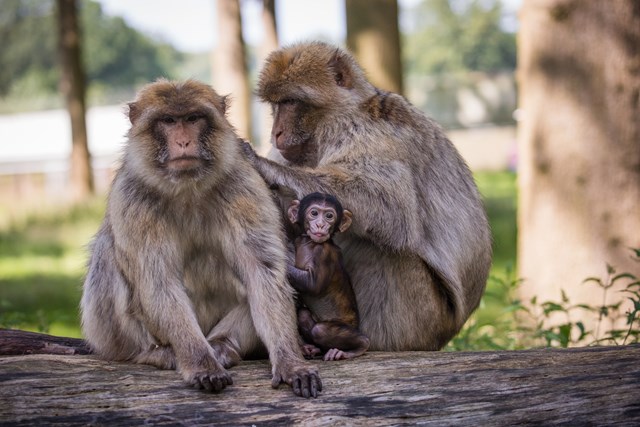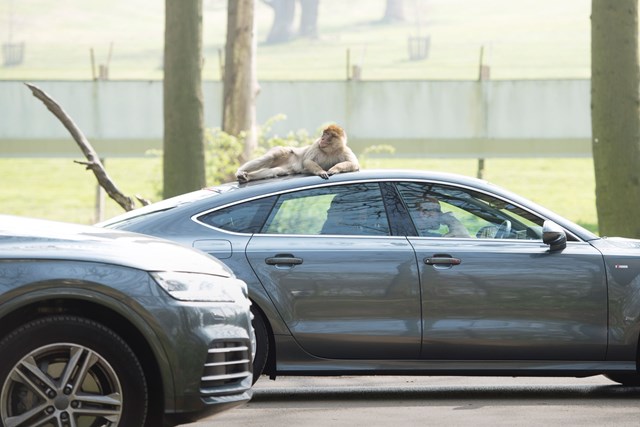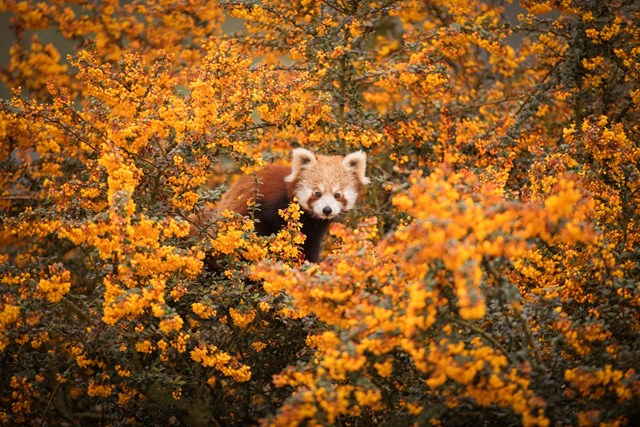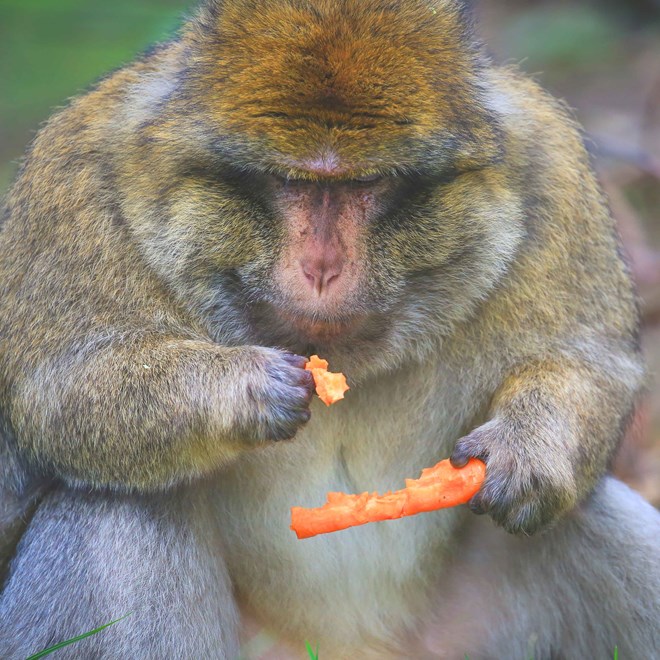
Overview
Barbary macaques are a hardy primate species and can tolerate both dry arid weather but also freezing cold conditions, therefore the troop of Barbary macaques at Woburn Safari Park have all year access to the enclosure and are never shut in any housing. This allows the troop to behave as naturally as possible, using the many trees within the enclosure to climb and roost in, forage through the many log piles created by the keepers and play like primates are well known for!
The ever growing troop of Barbary macaques can be found roaming freely within the African Forest on the safari drive-through.
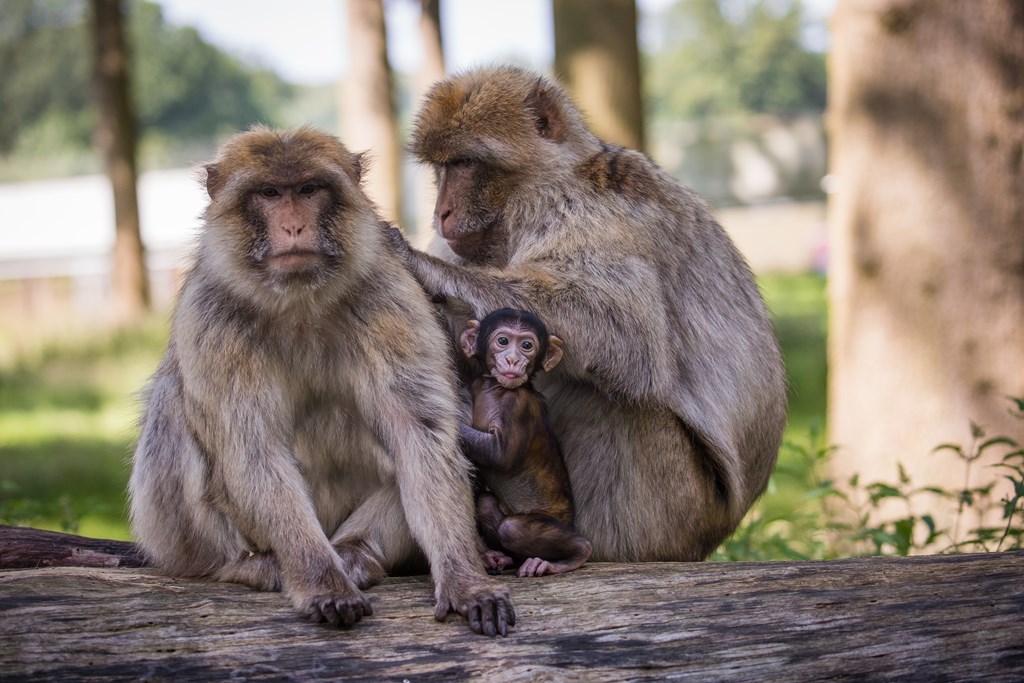
All about us
| Distribution: | Northern Africa and Europe |
|---|---|
| Habitat: | Pine, cedar forests |
| Height: | 45 - 70cm |
| Weight: | 10 - 16kg |
| Gestation Period: | 5.5 - 6 months |
| Lifespan: | 20 years |
| Threats: | Various reasons, including traded illegally as pets |
Scientific name: Macaca sylvanus
Barbary macaques are known as “old world monkeys”. This means they belong to the Cercopitecidae family and are native to Africa, Asia and Europe.
Barbarys live in large mixed sex troops of up to 60 individuals. There tends to be a matriarch (leading female) and a hierarchy forms around her. Bonds are formed within the troops and hours will be spent grooming one another and sleeping huddled in small groups.

In the warmer months the youngsters love to play around the pond and climb along the rope hanging over the water, using it to perform acrobatics and diving into the water, which provides entertainment for all to see!
In the winter months it is not uncommon to see our Barbary’s hitching lifts on the bonnets of vehicles as they enjoy the warmth of the car underneath them.
The gestation period is approximately 6 months and one offspring is born, however in rare incidents twins can be produced. Females will mate with as many of the males within the troop, so paternity can never be certain. However it is thought that this behaviour encourages the males to look out for the young. Males are involved heavily with raising the youngsters and spend lots of time grooming and playing with them, this also ensures the safety and survival of the offspring from predators.
Barbary macaques are omnivores, which means they will forage and eat meat.
Their diet consists predominately of leaves, roots, vegetables, and insects. They spend a large amount of time foraging for their food and will spend hours picking through log piles to find tasty insects. The keepers at Woburn encourage this foraging behaviour by offering scatter feeds of seeds and nuts, allowing them to perform as naturally as possible.
Barbary macaques are a light brown colour and have lighter undersides. They have dark pinkish faces and a very short vestigial tail. This means that genetically the use of a tail in this species has been diminished and is no longer needed.
Barbarys have large cheek pouches which when full allows them to hold the same amount of food as their stomachs! The cheek pouches enable the animal to gather food quickly if in vulnerable locations.
Wild populations of Barbary macaques have decreased rapidly over the last few years. This decrease is due to several factors, including being caught and sold as pets in the illegal pet trade, habitat loss due to the increase in logging. Local farmers also see them as pests and will set traps and terminate them regularly. This species of primates were once common across northern Africa and southern Europe, but now three-quarters of the wild population are found just in the Atlas Mountains.
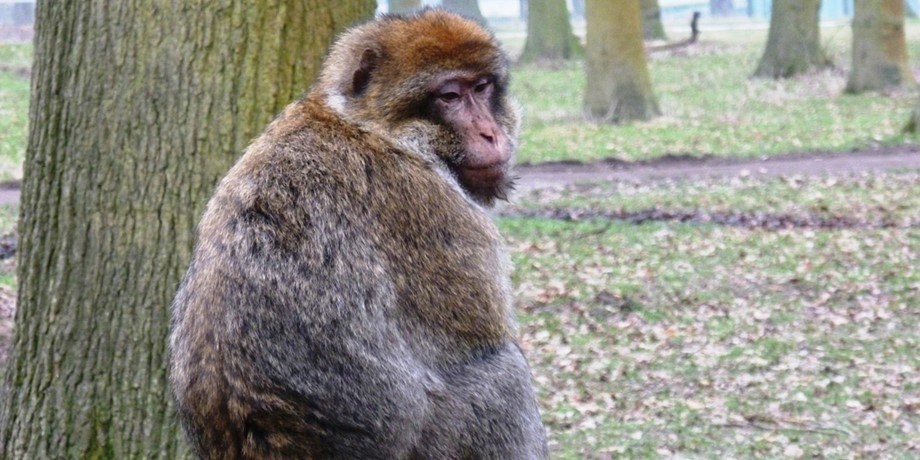
Meet berlinga the monkey
Berlinga lives in the African jungle drive-through reserve at Woburn Safari Park and is part of the troop of Barbary macaques monkeys.
